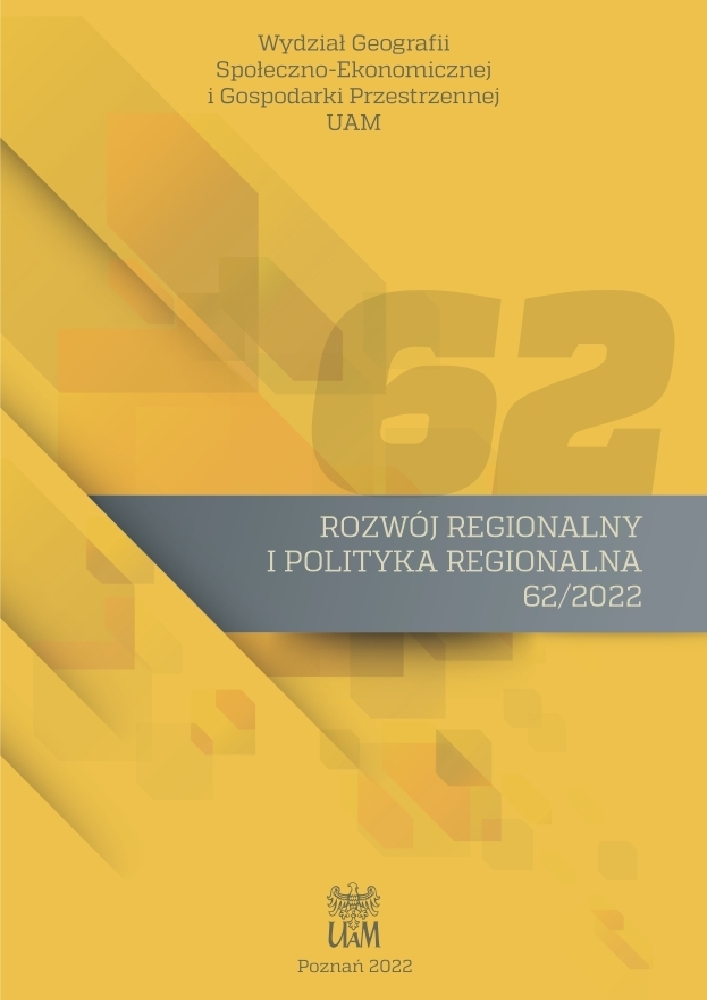Abstract
The article aims to analyze the experience of cooperation between social workers employed in social welfare centers in the Greater Poland Voivodeship and citizens to counteract the effects of the COVID-19 pandemic. In this article, I present the results of research conducted using quantitative and qualitative methods. Quantitative analysis was carried out using the computer-assisted telephone interview technique and the computer-assisted web interview technique in June 2020 among social workers employed in social welfare institutions in Greater Poland. The qualitative research was carried out using the method of an individual in-depth interview in April 2021 among 35 social workers also employed in institutions from Wielkopolska.
The article presented the assessment of social workers’ cooperation with the local community based on quantitative research during the COVID-19 pandemic. In this area, the following were rated the best: the police, non-governmental organizations, informal groups, and the Wielkopolska Voivodship Office in Poznań. The article presents significant differences in the assessment of cooperation depending on the type of commune represented by the respondent, the size of the designated institution, experience, or the type of position held. Qualitative research shows that local social welfare institutions have intensified cooperation with, among other things, local elites, e.g., councilors, village leaders, or volunteers. On the other hand, problems were pointed out in cooperation, especially with health service representatives or probation officers. The last part of the analysis presents the opinion of social workers on the positive effects of the COVID-19 pandemic, which primarily focuses on the issue of cooperation.
References
Buttell F., Ferreira R.J. 2020. The hidden disaster of COVID-19: Intimate partner violence. Psychological Trauma. Theory, Research, Practice, and Policy, 12(1): 197-198. https://doi.org/10.1037/tra0000646 DOI: https://doi.org/10.1037/tra0000646
Dahlberg L. 2021. Loneliness during the COVID-19 pandemic. Aging & Mental Health, 25(7): 1161-1164. https://doi.org/10.1080/13607863.2021.1875195 DOI: https://doi.org/10.1080/13607863.2021.1875195
Drozdowski R., Frąckowiak M., Krajewski M., Kubacka M., Modrzyk A., Rogowski Ł., Rura P., Stamm A. 2020. Życie codzienne w czasach pandemii. Raport z pierwszego etapu badań. Wydział Socjologii UAM.
Etzioni E. 2012. Aktywne społeczeństwo: teoria procesów społecznych i politycznych. Zakład Wydawniczy Nomos, Kraków.
Frąckowiak-Sochańska M., Hermanowski M., Kasprzak T., Kotlarska-Michalska A., Necel R., Zaręba M. 2020. Instytucje pomocy społecznej w czasie pandemii. Raport z badań. Cz. 1. Wydział Socjologii UAM.
Ioakimidis V., O'Connell L., Baxter V., Chard K., Speed E., White G. 2022. Challenge and opportunity: Making sense of the 'first lockdown' experience of families with young children and health and social care practitioners in Southend-on-Sea (the United Kingdom). International Social Work, 65(3): 406-420. https://doi.org/10.1177/00208728221083768 DOI: https://doi.org/10.1177/00208728221083768
Kaźmierczak T. 2006. Praca socjalna. Między upośledzeniem społecznym a obywatelskością. Wydawnictwo Śląsk, Katowice.
Krajewski M., Frąckowiak M., Kubacka M., Rogowski Ł. 2021. The bright side of the crisis. The positive aspects of the COVID-19 pandemic according to the Poles. European Societies, 23(1): 777-790. https://doi.org/10.1080/14616696.2020.1836387 DOI: https://doi.org/10.1080/14616696.2020.1836387
Krzyszkowski J. 2008. Pomoc społeczna. Szkic socjologiczny. Instytut Rozwoju Służb Społecznych, Warszawa.
Matysiak I. 2013. Sołtysi i sołtyski o pełnionych rolach i motywach sprawowania funkcji w wybranych środowiskach wiejskich. Wieś i Rolnictwo, 3(160): 138-152.
Necel R. 2019. Przedsiębiorstwo wobec rozwoju lokalnej społeczności - modelowe przykłady zaangażowania. [W:] H. Guzy-Steinke, A. Rutkowska (red.), Praca socjalna w środowisku i dla środowiska. Wyzwania, działania, efekty. Wydawnictwo Kazimierza Wielkiego, Bydgoszcz, s. 277-289.
Necel R. 2021. Rzecznictwo wybranych problemów społecznych z perspektywy socjologicznej. Wydawnictwo Naukowe UAM, Poznań. https://doi.org/10.14746/amup.9788323238843 DOI: https://doi.org/10.14746/amup.9788323238843
Peltz J.S., Crasta D., Daks J.S., Rogge R.D. 2021. Shocks to the system: The influence of COVID-19-related stressors on coparental and family functioning. Developmental Psychology, 57(10): 1693-1707. https://doi.org/10.1037/dev0001206 DOI: https://doi.org/10.1037/dev0001206
Putnam R.D. 2008. Samotna gra w kręgle. Upadek i odrodzenie wspólnot lokalnych w Stanach Zjednoczonych. Wydawnictwa Akademickie i Profesjonalne, Warszawa.
Rymsza M. 2016. Jaka profesjonalizacja pracy socjalnej w Polsce i jaki rozwój służb społecznych? Problemy Polityki Społecznej. Studia i Dyskusje, 35(4): 25-42.
Racław M. 2011. Ludzie instytucji i ludzie w instytucjach. Pracownicy socjalni o swojej pracy. [W:] M. Dudkiewicz (red.), Pracownicy socjalni: pomiędzy instytucją pomocy społecznej a środowiskiem lokalnym. Instytut Spraw Publicznych, Warszawa, s. 26-58.
Tsolou O., Babalis T., Tsoli K. 2021. The impact of COVID-19 pandemic on education: social exclusion and dropping out of school. Creative Education, 12(03): 529. https://doi.org/10.4236/ce.2021.123036 DOI: https://doi.org/10.4236/ce.2021.123036
Ustawa z dnia 12 marca 2004 r. o pomocy społecznej (Dz.U. z 2004 r., nr 64 poz. 593).
License
Copyright (c) 2022 Ryszard Necel

This work is licensed under a Creative Commons Attribution 4.0 International License.

